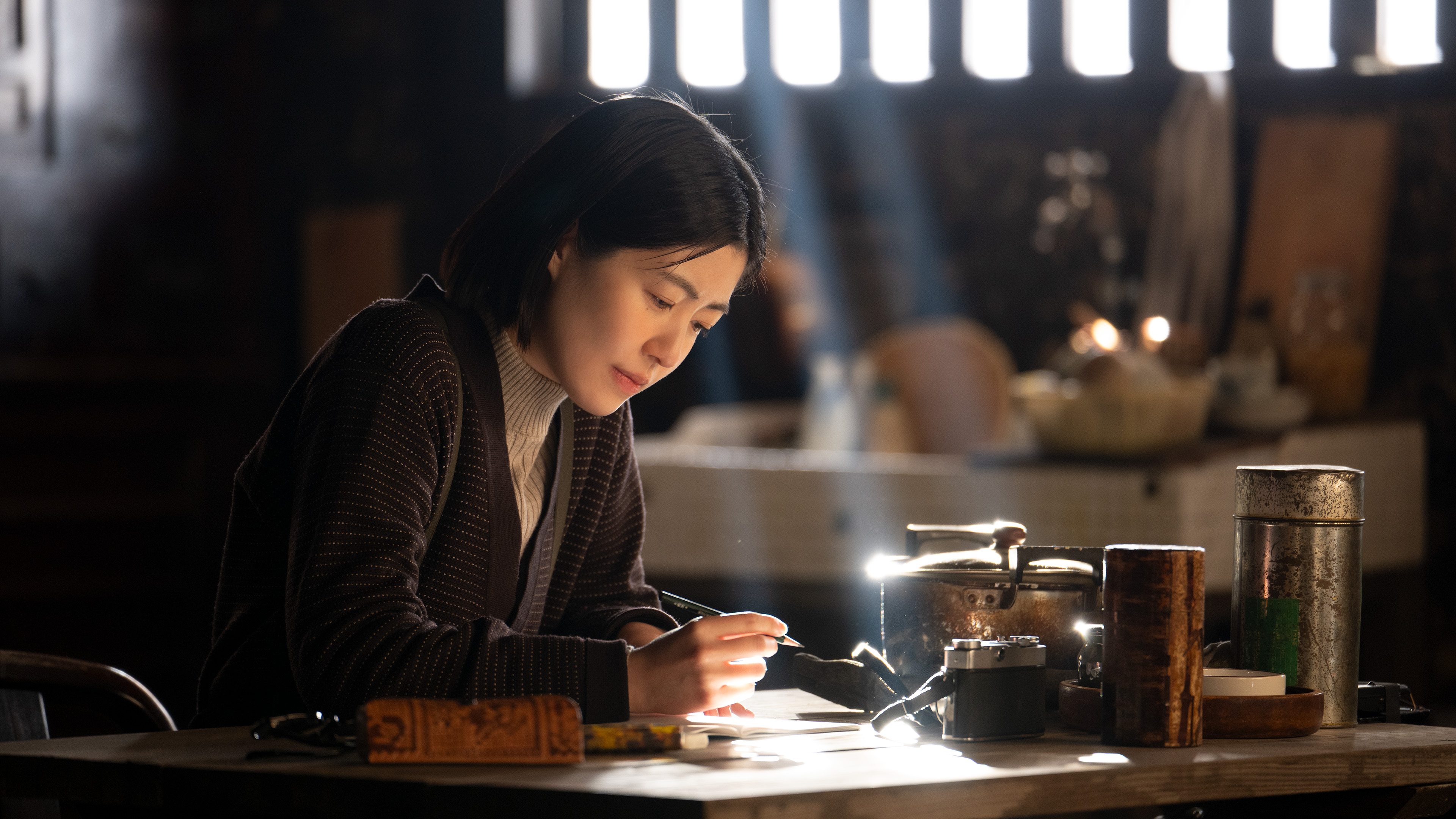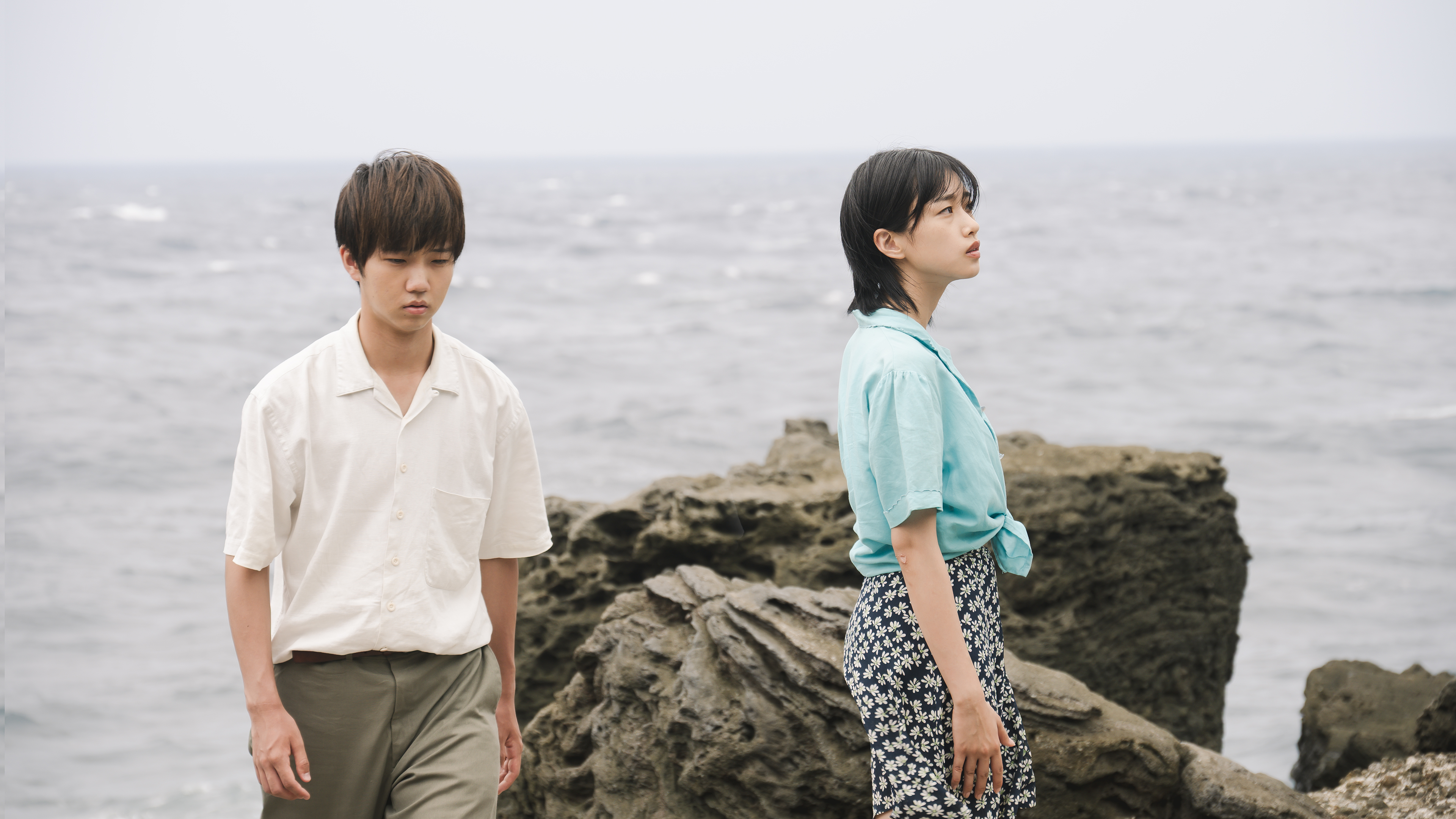
Sho Miyake is one of the finest, most soulful Japanese filmmakers of his generation. His recent features, all patiently-paced dramas about circumstantial relationships, share a compelling interest in the quiet. Not necessarily tranquility; almost every Miyake lead is outright depressed or a bundle of nerves about key issues in their life.
Rather, he favors characters who struggle with loneliness, withdrawing from engaging with people much at all due to factors that make human connection harder for them. “All the Long Nights” saw two office workers suffering from different detrimental conditions form a supportive bond to ease their respective pains. And in Miyake’s gorgeous, lo-fi take on a sports movie, “Small, Slow but Steady,” the quiet demeanor of its young boxer protagonist is due to a literal hearing impairment. She reads lips to understand people, while choosing to not articulate many of her inner thoughts.
In Miyake’s latest tender, beautifully textured feature (which just won Locarno’s highest honor, the Golden Leopard), “Two Seasons, Two Strangers,” the main character’s tendency to say very little is rooted in a creative slump, intertwined with cultural isolation. Li (Shim Eun-kyung, “Train to Busan”) is a Korean screenwriter for film and television, experiencing writer’s block and struggling to still connect to her surroundings in Japan, where she’s been based for years. At a Q&A session, she seems scared to answer the first question, suggesting that her main takeaway from watching her own work is that she doesn’t have much talent.
Within her own mind, she’s a little more articulate. Japanese is the only language that leaves Li’s mouth, but her occasional inner monologues are in her mother tongue, the most crucial example expressing her growing conflict with the very act of writing itself.

“Things happen in life that can’t be put into words,” she thinks. “Surprise and bewilderment blow me far away. I want to just stand there forever, far away from words. But words always take hold of me without fail. Everyday life is about naming the things and feelings around us and blending in. When I first came to Japan, everything around me was full of mystery and fear. The things and feelings that used to be fresh have now been overtaken by words. I’m in a cage of words. Maybe travel is about trying to get away from words.”
Traveling to get away from the noise of urban life, in the hope it might provide greater clarity or purpose, drives both female protagonists in Miyake’s film of two distinct halves. Contrasting Li, whose trip occurs in the winter, is Nagisa (Yuumi Kawai, “Desert of Namibia”), a young Japanese woman wandering a seaside town in the summer. Avoiding the tourist traps, she connects, albeit awkwardly, with Natsuo (Mansaku Takada), a similarly lonely soul visiting his relatives nearby.
Miyake’s “All the Long Nights” was adapted from a novel by Maiko Seo and “Small, Slow but Steady” was loosely based on the autobiography of boxer Keiko Ogasawara. With “Two Seasons, Two Strangers,” the writer/director once again draws inspiration from previously published material, though while his switch to bringing manga to live-action might seem like a curveball, the creator he’s adapting is an ideal match for the filmmaker’s skill with bringing real interiority to fable-like storytelling.
The hugely influential cartoonist and essayist Yoshiharu Tsuge is regarded as the first manga artist to have mined his personal life for story material, alongside being the first to make his characters’ internal conflicts the central focus of his narratives — something uncommon in the medium until the late 1960s, even in the gekiga style of Japanese comics aimed at adult audiences. His introspective works would range from stories of ordinary life to more overt surrealism, their atmospheres tinged with dreaminess, eroticism and mysterious tensions.
“Two Seasons, Two Strangers” loosely adapts two specific manga short stories by Tsuge. In pairing the otherwise unconnected comics, Miyake doesn’t quite follow the template of Jacques Audiard’s recent “Paris, 13th District,” which interweaved the plots of three previously separate short stories by American cartoonist Adrian Tomine. Rather, to start with, Miyake makes Li the screenwriter of an adaptation of Tsuge’s 1967 story “Scenes from the Seaside.”

The film opens on Li at her desk, silently working out how to begin her screenplay’s first scene. Bar the occasional cut back to Li writing a few more words, roughly the first 35 minutes of “Two Seasons, Two Strangers” are devoted to a take on “Scenes from the Seaside,” starring the aforementioned characters of Nagisa and Natsuo.
The fleeting but fulfilling chance encounter between the two young loners has the air of a meet-cute tale, and there’s certainly a romantic feel to how their situation develops. After first meeting at a secluded stretch of beach, they spend the rest of the day walking and talking, scheduling a second hangout at the same beach spot the following day. When a typhoon hits the town, neither is deterred from honoring their plans. Sheltered by a hut, he sits and waits for her as torrential showers surround him. When she shows up, they share dessert that he brought, both of them wearing what they would have anyway if the sun had kept shining, to the extent that Nagisa has a bikini ready underneath her dress to swim with Natsuo in the rain-drenched ocean.
Despite the seemingly sweet resolution to their storyline (and an ostensibly upbeat last line of dialogue), there’s a strange undercurrent to the Nagisa and Natsuo segment that suggests foreboding as much as potential happiness — a mysterious tension befitting the creator that Miyake is adapting. For one thing, their theoretically sensual swim occurs in stormy weather, the camera operator in the water with the actors clearly getting battered by the waves and heavy downpour. Elsewhere, part of their bonding is based around Natsuo sharing a grim childhood anecdote about seeing the bodies of drowning victims.
Within the universe of “Two Seasons, Two Strangers,” the dark layer to the movie-within-a-movie can be read as a reflection of Li’s despaired mind. The rest of Miyake’s film finds Li years after her Tsuge adaptation was written, still stuck on the idea of traveling from the tale of Nagisa and Natsuo as she struggles to write another project — apparently about ninjas. The magic structural trick that Miyake pulls with Li is that she herself is the protagonist of another Tsuge story: an adaptation of “Mr. Ben and His Igloo.”
On Tsuge’s page, that story concerns a male manga artist in search of inspiration, traveling to a remote village and staying with an eccentric innkeeper (barely) operating a business on its outskirts. In Miyake’s film, Li finally travels away from the city to deal with both burnout and the aftermath of a sudden tragedy, trying out a deserted mountain inn run by the cynical Benzo (Shinichi Tsutsumi), after every other option in the snow-draped town lacks vacancies. The pair’s initially stiff but gradually warm chats echo and augment those from Li’s previous screenplay, including bonding over an understanding of deep loneliness.
The build-up to the film’s low-key, poetic resolution is made all the more moving by Shim’s intelligent performance, which is effectively informed by the actor’s positioning between two languages throughout, giving her a platform and reason to convey additional emotional nuances without dialogue — the performer, in a sense, also breaking free from “a cage of words” like her character.
When working things out for the next chapter of our lives, we could all stand to get out of our own heads more to properly appreciate and take inspiration from the possibilities before us, instead of overthinking and then over-vocalizing our worries and doubts to the point of blocking our progress. To nod to a famous song that, like Miyake’s filmmaking, suggests enjoying the silence where possible, sometimes words are very unnecessary.
Grade: B+
“Two Seasons, Two Strangers” premiered at the 2025 Locarno International Film Festival. It is currently seeking U.S. distribution.
Want to stay up to date on IndieWire’s film reviews and critical thoughts? Subscribe here to our newly launched newsletter, In Review by David Ehrlich, in which our Chief Film Critic and Head Reviews Editor rounds up the best new reviews and streaming picks along with some exclusive musings — all only available to subscribers.



